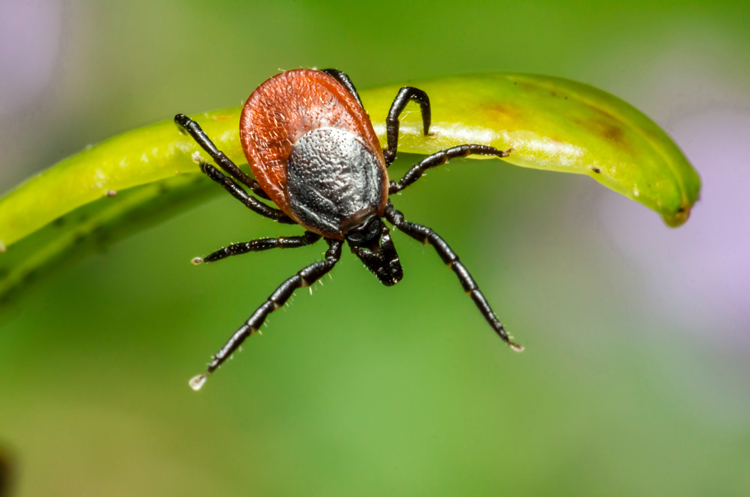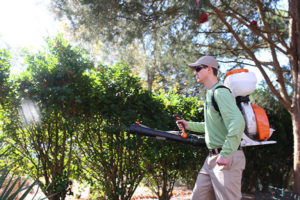Snow is beautiful to some, a pain to others. How does snow affect ticks?
I have written before about how ticks lie dormant in wintertime temperatures below 45°F. When we see a large snowfall, we tend to rejoice that it could result in fewer ticks and mosquitoes in the springtime. We equate snowfall with harsh winter conditions, but snow will not kill ticks.

Extremely cold temperatures kill ticks.
Consider this. We know that ticks become inactive in sustained temperatures below 45°F, but do not die. The atmospheric temperature must only be below freezing in order for snow to fall. That’s 32°F, as we all know. This is not what would be considered extreme cold. What’s more, if snow has fallen atop dormant ticks, it will provide a measure of insulation. According to JCLonline.com, one foot of snow offers the same protection as a 2″ x 4″ insulated wall. The reason this happens is because the heat absorbed from sunlight before a snowfall, dissipates much slower than air temperatures. Therefore, any heat stored in the earth will be further protected by a blanket of snow – it is called a blanket after all.

The temperature required to begin killing ticks is about 10°F. The catch is, there must be sustained temperatures at or below 10°F for many days. With warmer winters everywhere, this is not as common as you might think in today’s times.
Protect yourself this spring, because ticks will emerge.
We will likely not have a harsh winter, which will help reduce the ticks that emerge this spring. That is not to say all is lost. There are simple methods of protection that will help keep ticks at bay. If you love being outdoors, hiking or camping, be sure to use personal tick protection, such as DEET or Picaridin. For added protection, wear long sleeves and choose pants over shorts – even in summertime temperatures. Adding a barrier between blood-thirsty ticks and yourself is highly recommended. Perhaps most importantly, perform a thorough tick check each time you return from outdoor adventures.

At-home tick control.

Tick protection at home is also essential. You can choose from multiple methods of professional protection formulas, including all-natural Cohasset tick control and EPA-registered barrier sprays. All-natural formulas are applied like barrier sprays, covering your property, applied to all vegetation thereon. For about two weeks, all natural formulas will repel about 85% of the ticks from your yard. EPA-registered insecticides will not only eliminate ticks on the spot, but will work longer and better – eliminating about 95% of the ticks in your yard for up to three weeks. Reputable Central Mass tick control companies also offer special event sprays for outdoor weddings, family reunions, or other gatherings. Special even tick control will be applied a day or so in advance, and will help protect your loved ones from the threat of potentially dangerous ticks.

For the best protection available, choose year-round tick control with the use of tick tubes. Tick tubes are placed around your property in the late fall. They have an insecticide-treated cotton filling, which mice carry to their nests, where many ticks live. This added method of protection can literally break the 2-year tick life cycle, resulting in fewer ticks emerging in the spring.

Central Mass enthusiast for effective season-long mosquito and tick protection
Also read: Where do ticks live?